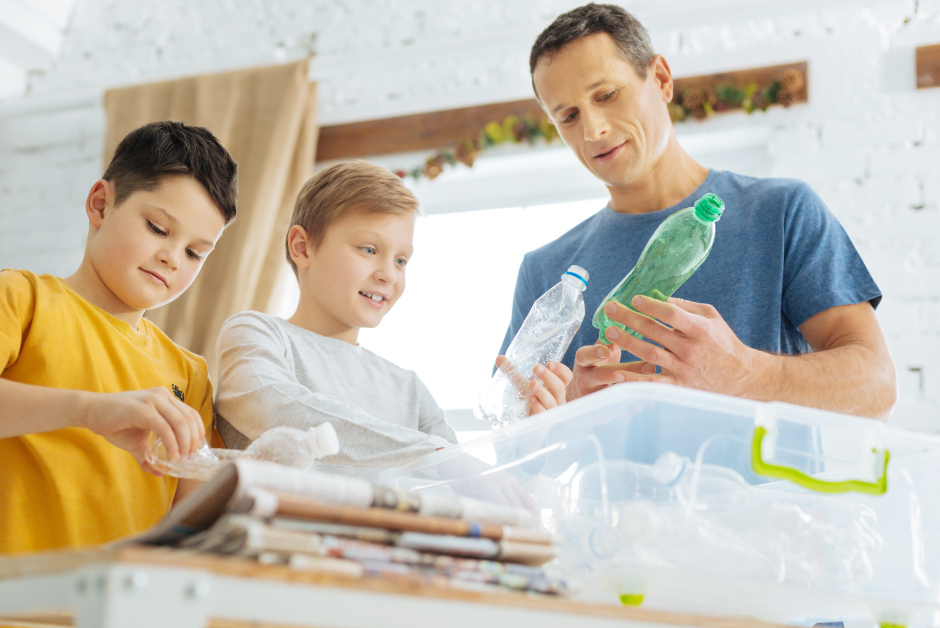Helping the planet from the comfort of your home
As a nation, Australians are collectively very mindful of the environment. We want to do our part, especially in the wake of a long drought and recent summer bushfires.
With the country spending more time at home, we have in recent months seen a suite of positive news stories about reduced emissions, improved air and water quality and animals returning to places where people would usually keep them away. While we’ve seen these reports of short-term benefits (we don’t know the extent of long-term benefits yet), it is still important that we continue to look for more ways to reduce our personal environmental impact.
The good news is that many eco-friendly choices we make in the home can contribute to our lifestyle and financial goals too.
We look at some ways you can utilise your resources better and make the most of your dollars at home.
Dress smart
Did you know Australians dispose of 6,000 kilograms of fashion and textile waste every 10 minutes?
That’s a lot of fibres in the soil, not to mention if it’s made of polyester or synthetic fabric it could take 20 to 200 years to decompose. Which means your first pair of lycra pants are probably still out there.
These shocking figures, and a growing awareness of the fast fashion industry is causing a shift in consumer buying. But if you’re not sure where to start, why not try one of these three ideas to reduce the amount of your fashion waste.
- Quality
Choose better quality over quantity. Buying a staple little black dress, or a leather jacket that is timeless and well-made is your first step to reducing your waste. Choosing to buy quality clothes from ethical manufacturers will also help. You can find a great list of ethical companies here. - Upcycle
Along with buying the occasional new outfit from an ethical company, consider buying your new threads from online marketplaces like Depop, where you can buy and sell second-hand clothes. You can also earn some additional money and reduce your fast fashion footprint by selling some of your own unwanted items. - Recycle
Ever heard of clothes being made out of plastic? You may not know it but there are many brands who are making clothes out of recycled plastic, fibres or even recycled fishing nets pulled from the oceans.
Some brands who offer eco-friendly clothing are Allbirds, Spell and Baaby. Purchasing from these brands will ensure you are minimising harm caused to the environment through your fashion choices.
Get smart – in the bathroom
Have you ever given much thought to how sustainable your bathroom is? If you are like most Australian households, you probably have plastic toothbrushes, plastic shampoo and conditioner bottles, not to mention razors, body wash, and the list goes on.
But did you know that your toothbrush alone will take 400 years to break down? Which should hopefully make you pause and consider what swaps you can make to reduce your personal plastics.
Think about swapping to a bar of body wash, a bamboo tooth brush or wooden body brush! These choices don’t have to cost you more either, as a bar of soap usually lasts longer than a bottle, so you won’t need to visit the shops as often. Plus, when you choose a natural soap you won’t have any nasties ending up in our water ways.
You can even swap to an eco-friendly razor, where the only thing you need to swap is the stainless steel.

Swapping to a bar instead of packaged shampoo and conditioner is an easy change that will reduce your plastic use.
Down the drain
Have you ever considered the effects of what goes down the drain from washing our dishes or clothes? Much of this water is contaminated from the cleaning products we use, effecting our waterways and the PH levels in the soil.
The water we use from cleaning could also be re-purposed to water your garden, saving money and helping conserve water. But in order to use this greywater we need to make sure we are using products that will be safe.
Consider swapping to detergents that have low phosphorus content such as products from Ecostore or Biozet. These brands won’t affect the soil if you repurpose your cleaning water and will have less impact on the environment.
Time your usage!
A huge part of our daily energy footprint comes from the amount of time we spend in the shower, using lights and other appliances.
While it can be hard to always remember to turn the lights off when we leave a room and stick to short showers, there are some nifty devices to help you stay on track.
Consider buying a shower timer or changing your shower head to a low flow option to save water and dollars. The average person spends over 12 minutes in the shower, costing you 20 cents per minute, or over $800 per year.
Adding a smart lighting control to help remind you to turn off the lights and switching to energy saving options like LED are more great ways to make a difference to the planet and your purse. Energy efficient light bulbs will save you $75 on your power bill each year!
Although the cost saved to the planet is priceless, doing a little audit of how much you could save with some other eco swaps around the home is a worthwhile exercise.
Just think, by sticking to six minute showers and changing your lights to energy saving bulbs you’ll have already saved $475! Make your home and back pocket feel a little greener today.
The opinions expressed in this article are the opinions of the author(s) and not necessarily those of Resimac.



 Login
Login

